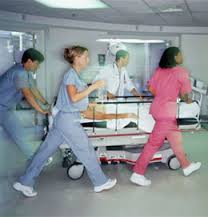Understanding the Methadone Overdose Potential
You’ve sought help for your addiction to opiates and your doctor has recommended that you participate in MMT or Methadone Maintenance Treatment. Methadone has been effective in treating addictions to opiates like heroin and narcotic prescription pain killers like Oxycontin and Vicodin. Methadone is also prescribed to treat chronic pain in some cases. It must be taken as directed by your doctor to avoid an overdose or dependence. It is important to understand how methadone overdose can occur and what you must do to prevent it.
Understanding Methadone Overdose
Methadone overdose occurs when someone takes too much methadone accidentally or they intentionally increase the dose to get high. It is dangerous to take any other drugs during MMT or to relapse on opiates taken illegally while using methadone. All cases could lead to a potentially higher risk of overdose.
Methadone is a long acting pain reliever and it stays in the blood stream for a quite some time, this allows the patient to take a single dose each day and can reduce drug-seeking behaviors, however if the dose is increased it can have devastating effects that can cause long term damage to internal organs and may even be life threatening. Methadone overdose can lead to organ failure, respiratory distress, heart attack, dangerously low blood pressure, coma and even death. You shouldn’t underestimate how dangerous methadone can be if you are abusing it.
Opiate Overdose
Methadone is a synthetic opiate which means that if an overdose occurs while taking it, the effects are the same as with any other opiate. It is no less dangerous to overdose on methadone than it is to overdose on heroin. When someone overdoses on opiates they need immediate emergency medical treatment but they should not make themselves throw up unless told to do so by poison control or a health care professional according to the National Library of Medicine.
Interaction with Alcohol

An overdose on methadone can be fatal – getting help ASAP is essential.
You should never mix methadone with alcohol as it intensifies the effects of alcohol and increases the chances of an overdose. Mixing methadone and alcohol or other drugs will cause drowsiness and may even cause confusion. Methadone should also not be taken with any other drugs that your doctor is unaware of to help prevent an overdose.
Having a beer or a glass of wine might seem harmless but in reality, if you think about it, you know you shouldn’t be using drugs or alcohol while you are taking methadone for a drug addiction. Let’s face it, if you didn’t have an addictive personality you probably wouldn’t need treatment for an opiate addiction in the first place.
The truth is that if you take methadone the way you are supposed to it has nearly zero chance of overdose. It is a safe way to manage the unpleasant physical withdrawal symptoms as well as the intense urge to use opiates. They key to successful treatment is to make a decision right from the start that you will only use methadone in the way your doctor has intended.
If you ever feel the urge to use more methadone than you should or if you are afraid you might relapse on other drugs, it is urgent that you speak to your doctor right away.